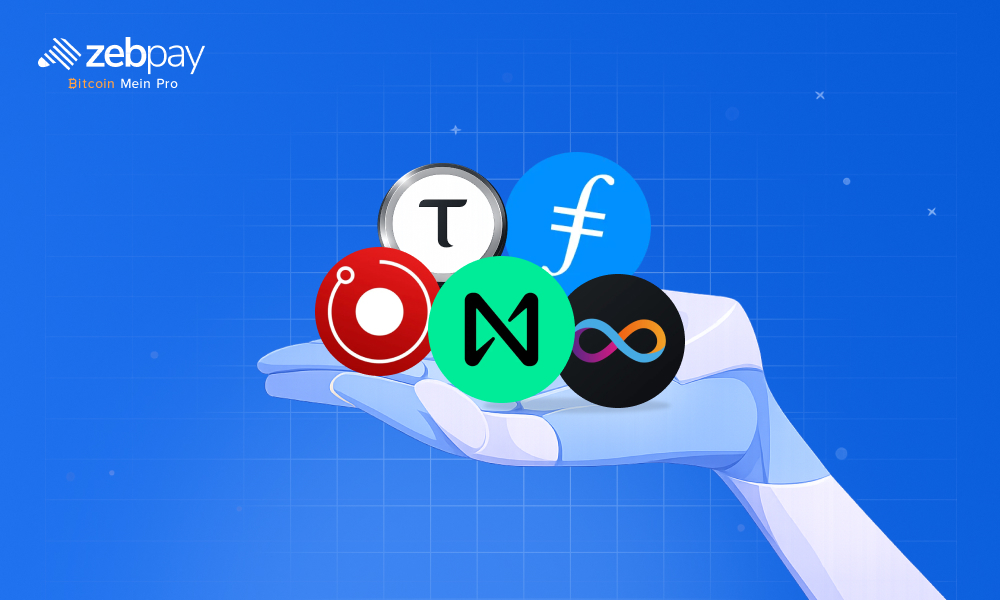Introduction to Blockchain
Blockchain technology has gained significant attention in recent years due to its potential to revolutionise various industries. It is a decentralised and transparent system that allows for secure and immutable transactions. However, not all blockchains are created equal. There are many different types of blockchains, each with its own pros and cons. In this blog, we will explore the advantages and disadvantages of public, private, consortium, and hybrid blockchains.
Types of Blockchains
There are several types of blockchains, each serving different purposes and catering to different needs. Here are some of the main types to keep in mind:
Public Blockchain
Public blockchains are open to anyone and everyone. They are decentralised networks where anyone can participate and validate transactions. Public blockchains offer the highest level of transparency, since transactions are recorded and verified by participants.
Private Blockchain
Private blockchains, on the other hand, are restricted to pre-determined participants. These blockchains are used by organizations to streamline internal processes and enhance efficiency. Unlike public blockchains, an administrator must grant participants access in private blockchains.
Consortium Blockchain
Consortium blockchains are a combination of public and private blockchain protocols. They are governed through a group of organisations instead of a single entity. Consortium blockchains strike a balance between decentralised operation and network control. They are used in industries where many organizations need to collaborate and share information.
Hybrid Blockchain
Hybrid blockchains combine the most important features of public and private blockchains. They allow for both public and private transactions, providing flexibility and interoperability. Hybrid blockchains are suitable for applications that require a combination of transparency and privacy.
Read more: Blockchain vs Cryptocurrency
Advantages of Public Blockchains
Decentralisation
Public blockchains are decentralised networks, which means that no single entity has control over the system. This decentralisation makes public blockchains more resistant to attacks and censorship.
Security
Public blockchains use cryptography to secure transactions and prevent unauthorized access. The distributed nature of public blockchains makes it difficult for hackers to manipulate data. Transactions are validated by multiple participants, ensuring security.
Transparency
Transparency is a key feature of public blockchains. All transactions recorded on a public blockchain are visible to anyone, promoting trust and eliminating the need for intermediaries.
Immutability
Once a transaction is recorded on a public blockchain, it is nearly impossible to alter or delete. This ensures there is no fraud, while data integrity is maintained.
Disadvantages of Public Blockchains
Scalability
Public blockchains face scalability challenges as the number of participants and transactions increases. This can result in slower transaction processing times and higher fees.
Speed
The decentralised nature of public blockchains makes transactions slower compared to centralised systems. This can be a limitation in applications that require instant transaction confirmation.
Energy Consumption
Public blockchains, especially those using Proof of Work (PoW) consensus, have energy consumption for mining. This high energy use raises several questions about its environmental impact.
Governance Issues
Public blockchains face governance challenges, as decision-making processes can be slow and contentious. Disagreements among participants can lead to forks and create many versions of the blockchain.
Advantages of Private Blockchains
Privacy
Private blockchains offer a higher level of privacy compared to public blockchains. Access is restricted to specific participants, ensuring transaction confidentiality.
Efficiency
Private blockchains are designed for specific use cases, allowing for faster and more efficient transaction processing. This efficiency is beneficial for applications that require real-time transaction processing.
Control
In a private blockchain, participating organisations have more control over the system. There is thus no need to worry about third-party influences on the network.
Compliance
Private blockchains provide a greater degree of compliance with regulatory requirements. This is because they can easily be tailored to business needs.
Disadvantages of Private Blockchains
Centralisation
Private blockchains are more centralised than public blockchains since participation is restricted. This centralisation introduces the need for trust in the administrator or governing entity.
Read more: What are Centralised Blockchains
Trust
In a private blockchain, participants must trust the governing entity to ensure the integrity and security of the system.
Interoperability
Private blockchains are typically isolated systems that do not interact with other blockchains or networks.
Maintenance Costs
Running a private blockchain involves maintenance costs. These include hardware infrastructure, software development, and ongoing technical support.
Advantages of Consortium Blockchains

Collaboration
Consortium blockchains enable collaboration among a group of organizations. This collaboration can streamline business processes, reduce friction, and enable faster decision-making.
Transparency
Consortium blockchains provide a higher level of transparency compared to traditional centralized systems.
Security
Consortium blockchains benefit from the security features of public blockchains while maintaining a level of control among the participating organizations.
Governance
Consortium blockchains allow for collective decision-making among the participating organizations. No single organization can exert undue control on the decision-making process.
Also Read: What is SushiSwap (SUSHI)?
Disadvantages of Consortium Blockchains
Complexity
Consortium blockchains are more complex to set up and manage compared to private blockchains. This is because of the need for collaboration between multiple different entities.
Centralisation
Consortium blockchains suffer from a higher degree of centralisation than public blockchains. This may result in operational difficulties if rules and regulations are not clearly defined.
Limited Access
Consortium blockchains have restricted access to a specific group of organizations. No one outside these organizations is allowed to operate the blockchain.
Trust Issues
Consortium blockchains rely on trust among the participating organizations. This can be problematic in practice, as many competitors may not want to operate transparently.
Advantages of Hybrid Blockchains
Flexibility
Hybrid blockchains provide flexibility by allowing both public and private transactions. It offers the best of both worlds and allows for customisation based on the needs of the application.
Security
Public transactions provide immutability and transparency, while private transactions offer privacy and confidentiality. This combination of security features enhances the overall security of hybrid blockchains.
Scalability
Public transactions can be used for high-volume, low-security transactions. Meanwhile, private transactions can handle sensitive or high-security transactions.
Interoperability
Hybrid blockchains offer interoperability by allowing interaction with other blockchains or external networks. This interoperability enables seamless data sharing and collaboration across different blockchain networks or systems.
Disadvantages of Hybrid Blockchains
Complexity
Hybrid blockchains can be more complex to design, implement, and manage compared to single-type blockchains. The integration of public and private components requires careful planning and coordination.
Governance Issues
Hybrid blockchains face governance challenges similar to those of public blockchains. Disagreements regarding protocol upgrades or changes can lead to fragmentation or conflicts within the hybrid blockchain network.
Integration Challenges
Organizations need to ensure compatibility and smooth data flow between different blockchain networks and traditional IT systems. Overcoming integration challenges and establishing robust interfaces are crucial for successful implementation.
Interoperability Challenges
Interoperability remains a significant challenge for hybrid blockchains. Ensuring seamless data transfer and communication between different blockchains or external networks requires standardized protocols and interfaces.
Read more: What Is Blockchain Without Crypto
Conclusion
Different types of blockchains offer unique advantages and disadvantages depending on the specific requirements of an application or industry. Understanding the strengths and limitations of each blockchain is crucial for organisations and developers. This helps you choose the most suitable option for your needs. As blockchain technology evolves, addressing the disadvantages and finding solutions to scalability, governance, and interoperability challenges will further enhance the potential of blockchain applications across various industries.
Unravel everything that you need for your crypto journey via ZebPay blogs. Get started today and join 6 million+ registered users on ZebPay!
FAQs on Advantages and Disadvantages of Different Types of Blockchain
What are the different types of blockchain and how do they differ from each other?
Blockchains are generally classified into four main types: public, private, consortium, and hybrid. Public blockchains are open and permissionless, allowing anyone to participate. Private blockchains are permissioned and controlled by a single organisation. Consortium blockchains are governed by a group of organisations, while hybrid blockchains combine elements of both public and private networks. The key differences lie in access, governance, transparency, and control.
What are the main advantages and disadvantages of public blockchains?
Public blockchains offer high transparency, decentralisation, and strong security due to wide participation and consensus mechanisms. They are resistant to censorship and single points of failure. However, they often face scalability challenges, higher transaction fees during peak usage, and slower transaction speeds compared to permissioned networks.
How do private blockchains differ from public blockchains in terms of control and security?
Private blockchains are controlled by a single entity that decides who can access the network and validate transactions. This allows for faster processing, lower costs, and greater control over data privacy. However, reduced decentralisation means they rely more on internal trust and are potentially more vulnerable to insider risks compared to public blockchains.
What use cases are best suited for consortium blockchains?
Consortium blockchains are ideal for industries where multiple organisations need to collaborate while maintaining shared control. Common use cases include supply chain management, interbank settlements, trade finance, and healthcare data sharing, where trust is distributed among known participants rather than a single authority.
How do hybrid blockchains combine features of public and private blockchains?
Hybrid blockchains allow organisations to keep sensitive data private while still leveraging the transparency and security of public networks. Certain data or transactions are stored on a private layer, while selected information is anchored or verified on a public blockchain. This approach balances privacy, compliance, and decentralisation.
Which type of blockchain offers the best balance between transparency and privacy?
Hybrid and consortium blockchains generally offer the best balance between transparency and privacy. They enable controlled access to sensitive information while maintaining shared visibility and accountability among authorised participants, making them suitable for enterprise and regulated environments.
What are the scalability challenges faced by different types of blockchains?
Public blockchains often struggle with scalability due to decentralised consensus and high network participation, leading to slower speeds and congestion. Private and consortium blockchains scale more efficiently because they use permissioned validators, but they may sacrifice decentralisation. Hybrid blockchains aim to address scalability by offloading certain processes to private layers.
How do governance models vary across public, private, consortium, and hybrid blockchains?
Public blockchains rely on decentralised governance, where changes are proposed and adopted through community consensus. Private blockchains follow centralised governance controlled by a single organisation. Consortium blockchains use shared governance among participating entities, while hybrid blockchains combine decentralised and centralised decision-making depending on the network layer.
What security risks are associated with each type of blockchain?
Public blockchains face risks such as smart contract vulnerabilities, network congestion, and majority attacks, though their decentralisation offers strong resilience. Private blockchains are more exposed to insider threats and single points of failure. Consortium blockchains depend on trust among members, making collusion a potential risk. Hybrid blockchains must manage security across both public and private components.
How should organisations choose the right type of blockchain for their needs?
Organisations should assess factors such as data sensitivity, regulatory requirements, scalability needs, governance preferences, and the level of trust between participants. Public blockchains suit open and decentralised applications, private blockchains fit internal enterprise use cases, consortium blockchains support multi-party collaboration, and hybrid blockchains work well where transparency and privacy must coexist.






